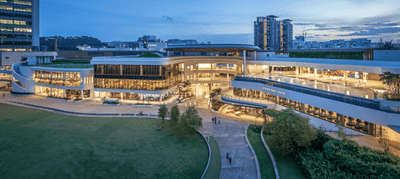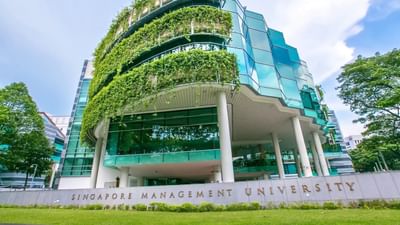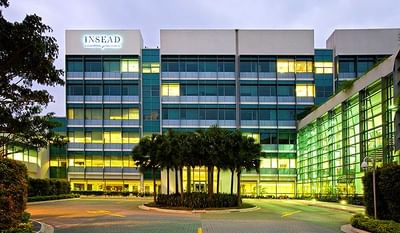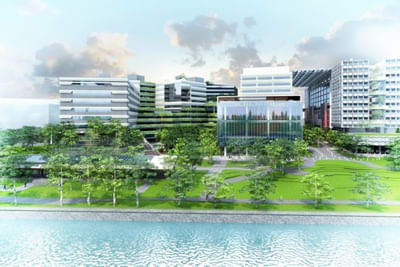Study in Singapore

This country in the Far East is a perfect blend of the region’s traditional Asian heritage amidst a rapidly developing modern backdrop. Singapore is a country that finds itself on the lists of several top study abroad destinations. A large number of students from over the world work tirelessly to study in Singapore and open doors of bountiful opportunities for themselves. Singapore is home to over 77,000 students from hundreds of countries across the globe who are studying courses in a wide variety of disciplines at the country’s 34 higher education institutions. If you are looking to study in Singapore, you will be exposed to world-class education, exceptional teaching facilities and cutting-edge student infrastructures throughout.
Education System in Singapore
Singapore has been consistently ranked among the highest in the world by the Organisation for Economic Co-operation and Development (OECD) over the years in terms of education. Unlike Western countries and Singapore’s other counterparts, the teaching system in the country helps students work through their syllabus rather than hurriedly complete it contributing to the rat race. This not only helps students study better by comprehensively understanding their coursework but also helps to significantly improve student morale and motivation.
There is a well-rounded education system in place right from when a child enrols in kindergarten. The education system in the country is divided into preschool for children between the ages of three and six, followed by six years of primary school and then six years of secondary school. Students in secondary school are classified into N-level or O-level based on their choice of programme. Students who wish to study further at university, have to take A-level exams after an additional two years of study.
The Ministry of Education oversees the structuring, maintenance of standards and development of education at several levels in the country. At postsecondary levels of education, the country has a couple of careers and technical education systems which guide students through the country’s higher education channels.
Despite being a foreign language speaking country, Singapore is home to people from all across the world. This has made English the most commonly spoken language at both school and work. If you are doubtful to study in Singapore owing to a possible language barrier, there’s nothing holding you back because a large percentage of the country’s native, foreign and ethnic populations converse freely in English.
Why Study In Singapore?
Study abroad in Singapore has been riding the high wave for the past few years for a variety of reasons. Among the major factors for increasing student influx is that the country has everything one can possibly want. Apart from its stunning architecture and contemporary cityscape, Singapore also has a solid welfare system in place for its residents. This fosters a safe and secure environment for young students coming from all parts of the world.
- Academic Excellence: A number of Singaporean universities can be found on a number of “The Best Universities in Asia” as well as “The Best Global Universities” lists. The country prides itself on providing an enriching, world-class and exceptional education. What sets Singaporean education apart is that it is global in nature so if you are an international student, you can fit right into their system without feeling left behind.
- Dazzling Career Prospects: Matching its steps with each revolutionary advancement of the 21st century, Singapore has thriving opportunities in each sector. Be it business, technology, engineering or medicine, there’s always something dynamic awaiting students post their graduation. It gives them the chance to advance in their careers like no other.
- Multicultural Society: People from different parts of the globe call Singapore home. Over the past several decades, people from neighbouring countries and continents migrated to Singapore in hopes of a brighter future. Not only are they reaping the rewards now but this has given rise to Singapore's multi-faceted culture. No matter where you come from, you will feel right at home in Singapore.
- Quality Of Life: Singapore prides itself on offering its residents a high-quality standard of living. For young students, the country does not compromise when it comes to safety and security. A low crime rate is evident throughout the country. And when it comes to welfare, the country takes the well-being of its residents very seriously too. The country’s people as well as students from international countries were well looked after during the worldwide pandemic of COVID-19.
Available Courses To Study
Singaporean universities provide courses spanning a multitude of disciplines. Certain universities specialise in certain areas of research and study meanwhile others provide a plethora of options for students to pick from. This wide variety attracts students from all across the world who wish to study abroad in Singapore as they get the opportunity to pick diverse and obscure subjects of study. Some courses with the highest footfall at universities across the country are listed as follows.
Finances
Cost Of Education
The cost of education in Singapore doesn’t necessarily rival that of other countries but falls more or less in the same category as its counterparts. Evidently, bigger universities in the country have heftier fee structures as compared to tuition fees of comparatively smaller universities. Other factors that determine the tuition fees are the course that you opt for and most importantly, whether you are categorised as a home or international student.
If you are deciding to study in Singapore for International Students, below mentioned are the average tuition fees for international students.
- Tuition fees for undergraduate programmes for international students: 17,000 SGD - 39,000 SGD.
- Tuition fees for postgraduate programmes for international students: 35,000 SGD - 45,000 SGD.
Cost Of Living
Singapore is known worldwide for its skyrocketing cost of living. It's an expensive country to live in, but there’s no doubt that its residents can avail of the best amenities and a highly comfortable way of life. Despite its pricey cost of living, it is known for fostering a very nurturing and positive environment to lead your life. For students, their cost of living would be determined by what kind of and where their student accommodation is situated, and the frequency of transportation use among others. Below mentioned are the average living expenses a student would incur upon living in the country.
|
Particulars |
Expenses |
|
Rent |
2,000 SGD - 2,200 SGD |
|
Food |
60 SGD - 100 SGD |
|
Transport |
110 SGD |
|
Leisure |
140 SGD - 200 SGD |
|
Utilities |
137 SGD |
Cost Of Studying In Singapore
Interest rates as low as 8.9% *
Avg. on-campus living expense S$20,560.8
250K+
Students Assisted
800Cr+
Loan Amount Disbursed
5000+
Loans Sanctioned
Admission Process
An undergraduate or a bachelor’s programme can be pursued by a student looking to gain admission to a Singaporean university on the basis of their Class XII or A-Levels qualifications. There is even a TOEFL (Test of English as Foreign Language) or IELTS requirement for international students looking to study in Singapore. A Masters in Singapore requires a valid undergraduate degree from a recognised higher education institution either from the country or from elsewhere in the world.
Academic Requirements: A student requires a minimum academic record of 70% to gain admission to a Singaporean university. This requirement is for public universities in the country whereas private educational institutions accept students who have scored even below 60%.
Documents Required For Admission
The primary documents required for admission to any university across Singapore would be records stating past academic certificates and pursuits. Other mandatory documents required for admission are -
- Student’s bio-data
- Passport
- Required number of passport size photographs
- Proof of acceptance from institution
- Student application form
- Past academic records
- Proof of funds
- Visa fee receipt
- Proof of proficiency in English (TOEFL or IELTS test scores)
Visa Process and Requirements
An international student wanting to study in Singapore requires a student PASS. A visa in Singapore is referred to as a PASS. You are eligible to apply for a student visa upon receiving admission to one of the country’s Institutes of Higher Learning (IHL). Once you fill out your application form, it is submitted to the Student’s Pass Online Application. Your application is further processed by the Singapore Immigration and Checkpoints Authority (ICA).
There are short-term and long-term passes available for students depending on their programme duration and structure. The latter is granted for 3 months and is ideal for diploma and certificate courses. Students enrolling for an undergraduate or postgraduate programme will require a long-term pass depending on the duration of the programme.
Visa Fees: There are two types of fees with regard to obtaining a visa. There is the visa processing fee and the visa issuance fee. The processing fee costs SGD 30 and the issuance costs SGD 60. Multiple entry fees cost an extra SGD 30.
Documents Required For Student Visa Application
- Valid passport
- Student visa application form(s)
- Visa application fee receipt
- IHL acceptance letter
- Proof of funds
- Past academic certificates
- Test scores required by your IHL of choice












